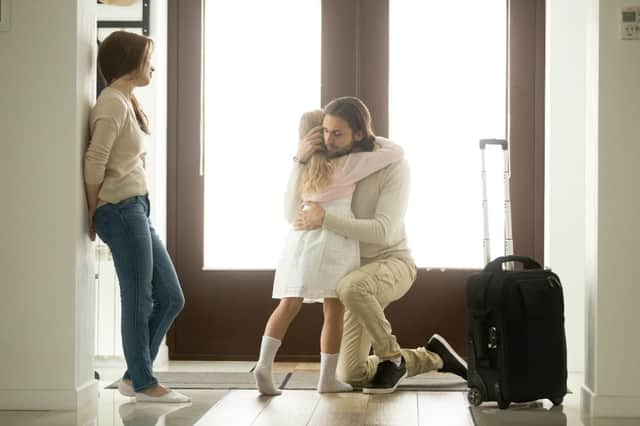Are parents allowed to share custody during the UK lockdown? The rules around joint custody explained


With the UK now under lockdown as of Monday (23 Mar) evening, strict new measures have raised concerns about what freedoms are still allowed - particularly among parents.
Addressing the nation via a televised speech on BBC 1 on 23 March, Prime Minister Boris Johnson ordered people to only leave their homes for specific and essential reasons.
Advertisement
Hide AdAdvertisement
Hide AdSo what does this mean for parents who share custody of their children?
Can parents share custody during lockdown?
Parents who have separated can still share custody of their children during the UK lockdown, the government has confirmed.
The situation for children with separated parents was met with some confusion on Monday night (23 Mar), when Boris Johnson issued a ban on visiting any household, other than your own.
The tough restrictions raised concerns for children who divide their time between two parents, often by the order of a court, or as part of a divorce settlement.
Advertisement
Hide AdAdvertisement
Hide AdCabinet Office minister Michael Gove later added to the confusion on Tuesday (24 Mar) morning, telling ITV: “You should not be moving children from home to home.”
His comments were later clarified, with Mr Gove admitting he had not been “sufficiently clear”, and that children are able to move between both their parents - but movement should be “kept to a minimum”.
What is the official advice?
The official government guidance states: “Where parents do not live in the same household, children under 18 can be moved between their parents’ homes”.
Mr Gove clarified: “To confirm - while children should not normally be moving between households, we recognise that this may be necessary when children who are under 18 move between separated parents.
Advertisement
Hide AdAdvertisement
Hide Ad"This is permissible and has been made clear in the guidance."
What other lockdown restrictions are in place?
The new restrictions now mean people should only leave their home for the following four reasons:
- Infrequent shopping for basic necessities, such as food or medicine. People should use delivery services where they can
- One form of exercise per day, either alone or with people you live with
Advertisement
Hide AdAdvertisement
Hide Ad- For a medical need, such as a doctor or hospital visit, or to take care of the vulnerable
- To go to work, but only if this cannot be done from home
Shops that are permitted to stay open include supermarkets and other food shops, health shops, pharmacies, petrol stations, bicycle shops, home and hardware shops, launderettes and dry cleaners, garages, car rentals, pet shops, corner shops, newsagents, post offices and banks.
Parks will also remain open for exercise, but playgrounds and outdoor gym spaces will now be closed.
How will restrictions be enforced?
Mr Johnson said that police will have “the powers to enforce” these rules, and can issue fines of £30 and dispersal orders.
Advertisement
Hide AdAdvertisement
Hide AdThis is similar to measures put in place in other European countries, including France, which has issued more than 90,000 fines since the lockdown began a week ago.
France has also issued citizens with forms to fill out whenever they leave the house, which details precisely why they are out.
How long will the UK lockdown last?
The lockdown measures will initially be in place for at least three weeks, taking effect immediately from Monday (23 Mar) night.
The situation will then be reviewed in 21 days and relaxed if the Government believes it to be possible and safe to do so.
Advertisement
Hide AdAdvertisement
Hide AdCoronavirus: the facts
What is coronavirus?
COVID-19 is a respiratory illness that can affect lungs and airways. It is caused by a virus called coronavirus.